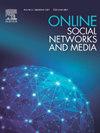Selecting and combining complementary feature representations and classifiers for hate speech detection
Abstract
Hate speech is a major issue in social networks due to the high volume of data generated daily. Recent works demonstrate the usefulness of machine learning (ML) in dealing with the nuances required to distinguish between hateful posts from just sarcasm or offensive language. Many ML solutions for hate speech detection have been proposed by either changing how features are extracted from the text or the classification algorithm employed. However, most works consider only one type of feature extraction and classification algorithm. This work argues that a combination of multiple feature extraction techniques and different classification models is needed. We propose a framework to analyze the relationship between multiple feature extraction and classification techniques to understand how they complement each other. The framework is used to select a subset of complementary techniques to compose a robust multiple classifiers system (MCS) for hate speech detection. The experimental study considering four hate speech classification datasets demonstrates that the proposed framework is a promising methodology for analyzing and designing high-performing MCS for this task. MCS system obtained using the proposed framework significantly outperforms the combination of all models and the homogeneous and heterogeneous selection heuristics, demonstrating the importance of having a proper selection scheme. Source code, figures and dataset splits can be found in the GitHub repository: https://github.com/Menelau/Hate-Speech-MCS.

 求助内容:
求助内容: 应助结果提醒方式:
应助结果提醒方式:


